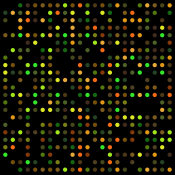Aggregated News

So you send your DNA off to an ancestry company, and get a report back that says you're part Native American, or part Italian, or part Nigerian. So what?
Maybe you're excited to learn about your roots, but can you really consider yourself part of that culture?
Not really, says Kim TallBear.
"We construct belonging and citizenship in ways that do not consider these genetic ancestry tests. So it's not just a matter of what you claim, but it's a matter of who claims you."
TallBear is an indigenous scholar based at the University of Alberta. She's reacting to a particular advertisement for DNA ancestry tests, that shows a woman who learns she is "26 percent Native American," and can't wait to learn more about her heritage. It got regular play in Canada during Major League Baseball playoffs this year.
But learning about one's "Native American heritage" is not simple. For one thing, "Native American" is a pretty broad term: whose heritage does she learn? Inuit? Maya? Coast Salish? The tests don't give you that much detail. ...



